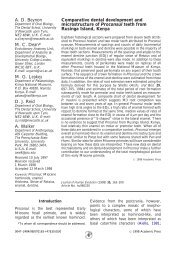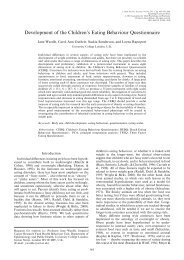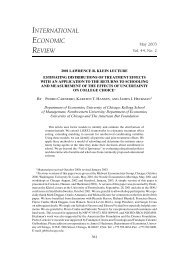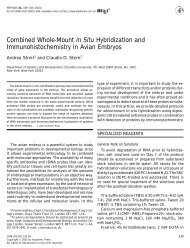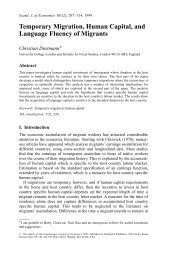The Ambitions of Contract as Promise Thirty Years On ... - UCL
The Ambitions of Contract as Promise Thirty Years On ... - UCL
The Ambitions of Contract as Promise Thirty Years On ... - UCL
Create successful ePaper yourself
Turn your PDF publications into a flip-book with our unique Google optimized e-Paper software.
<strong>Ambitions</strong> <strong>of</strong> <strong>Contract</strong> As <strong>Promise</strong> 24 August 2012 discussion draft: do not quote or reproduce without permission<br />
weigh the gains against the costs—costs that include the<br />
possibility <strong>of</strong> discouraging an efficient breach somewhere<br />
down the road—and will include the clause only if the benefits<br />
exceed those costs <strong>as</strong> well <strong>as</strong> all other costs.<br />
<strong>On</strong> this view the refusal to enforce penalty clauses is (at<br />
best) paternalistic—and it seems odd that courts should display<br />
parental solicitude for large corporations. 43<br />
What remains <strong>of</strong> Shiffrin’s point, I think, is that there is in this re<strong>as</strong>oning<br />
the danger <strong>of</strong> an infinite regress: if the remedy may be stipulated ad lib in the<br />
contract, what <strong>of</strong> the promisor’s failure to comply with that second-order,<br />
remedial obligation? At some point, the law must step in and enforce the<br />
contract; and in doing so, it must take account <strong>of</strong> the costs imposed by the<br />
faithless promisor not only on his counterparty but also on the judicial system and<br />
the regime <strong>of</strong> confidence in contracts in general.<br />
It is, <strong>of</strong> course, the c<strong>as</strong>e that many, perhaps most, contracts do not<br />
specify remedies in the event <strong>of</strong> breach. Indeed, all contracts fail to specify the<br />
parties’ intentions in respect to many matters that ex ante seem quite remote<br />
and, at any rate, not worth spelling out. So courts are regularly called upon to<br />
fill in details that only ex post may loom large. This is a t<strong>as</strong>k that <strong>Contract</strong> <strong>as</strong><br />
<strong>Promise</strong> discussed under the term “gaps”: “<strong>The</strong> gaps cannot be filled, the<br />
43 Lake River Corp. v. Carborundum Co., 769 F.2d 1284, 1288-89 (7th Cir. 1985).<br />
22




